gastrointestinal lymphoma in cats symptoms
Affects the lymphoid organs in the chest most often seen in young cats. The symptoms of this type of cancer are quite nonspecific so several tests may be necessary to find the disease.
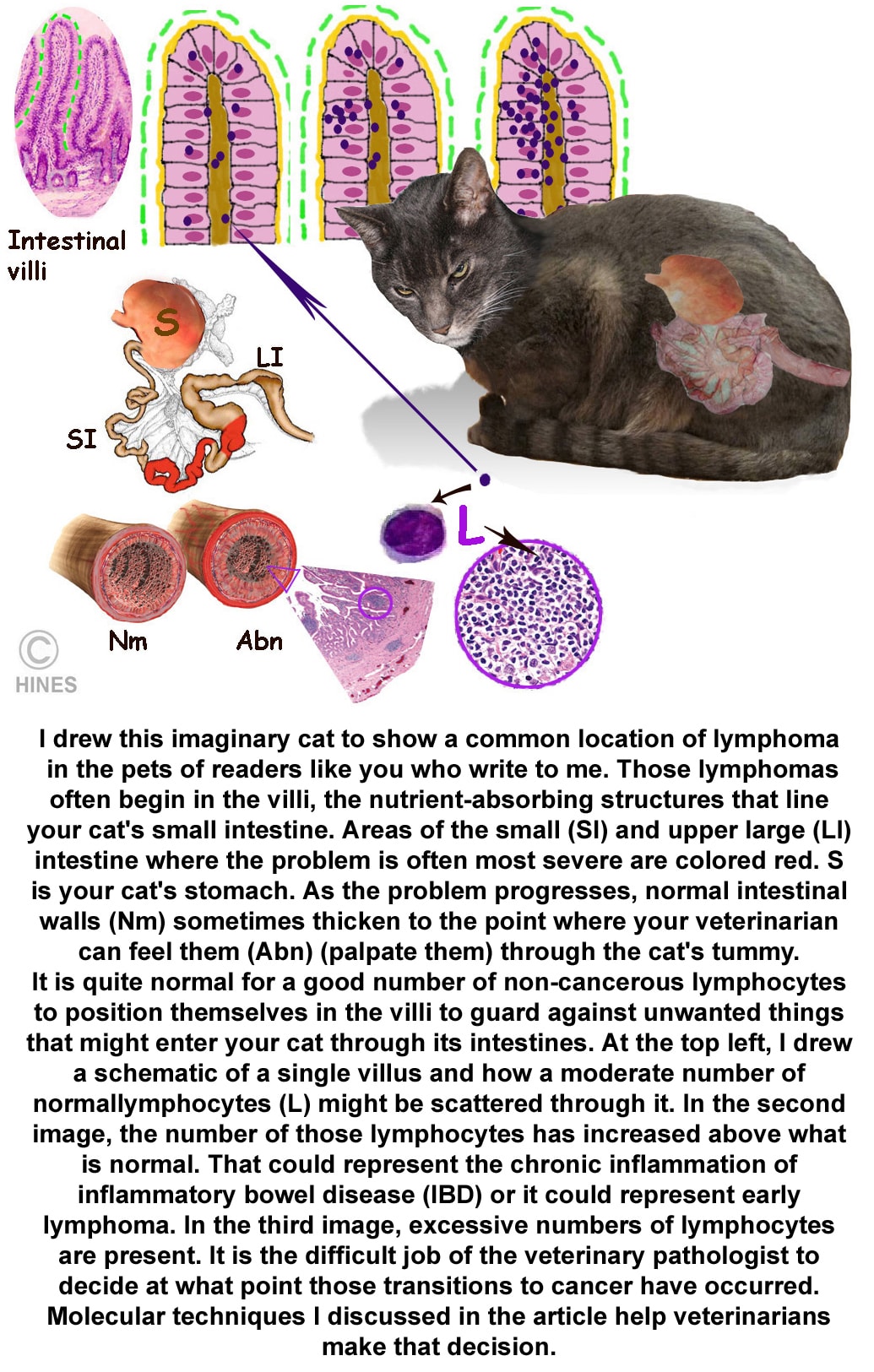
Lymphoma In Your Cat Ron Hines Vetspace 2nd Chance The Animal Health Website
Most cats with feline intestinal lymphoma are seniors 913 years and have a history of vomiting diarrhea andor inflammation of the intestinal tract.
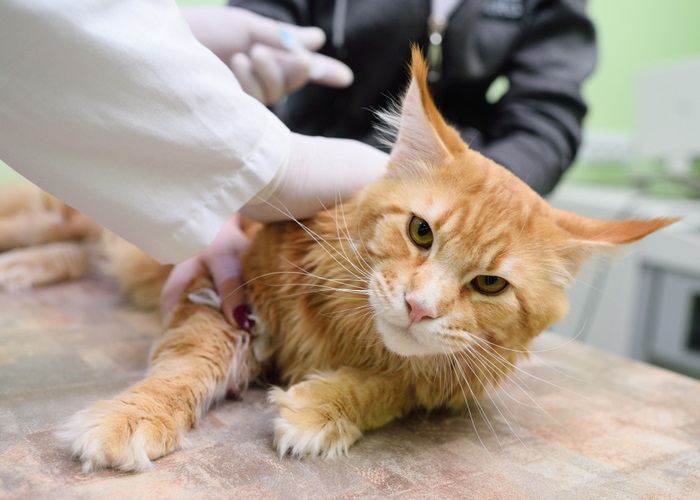
. In cats with large cell intestinal lymphoma these symptoms can come on very rapidly in a matter of just days or weeks whereas cats with the small cell version of the disease will show a much slower onset of symptoms. Some of the most common areas of the body that can be affected by this cancer are the gastrointestinal tract chest cavity liver and spleen. First a blood test is always used to detect systemic.
Other symptoms are common depending on where the cancer invades. Cats with Feline Leukemia Virus FeLV or Feline Immunodeficiency Virus FIV are more likely to develop lymphoma. Life expectancy varies depending upon the type and treatment.
This is by far the most common type of lymphoma in cats accounting for 50-70 of feline lymphoma cases. This term describes lymphoma that affects the gastrointestinal tract. Lymphoma is found to be responsible for around 90 percent of blood cancers and account for about 33 percent of all tumors in cats.
Lymphoma can also be found in the lymph nodes of the chest resulting in. As lymphocytes are present throughout the body lymphoma can develop in any organ. High-grade and low-grade lymphoma.
They are usually quite ill and the symptoms can be dramatic. Cats may develop different types of lymphoma including. Find out what you need to know about feline intestinal lymphoma and 2 other common types of lymphoma in cats including signs causes and treatments available.
Gastrointestinal GI lymphoma is the most common form and includes the stomach liver and intestines. In any cat that has signs consistent with high-grade GI lymphoma the first diagnostic step is an abdominal ultrasound. Cats with high-grade GI lymphoma will suddenly develop vomiting diarrhea weight loss and lethargy.
It is the most common cancer seen in felines and it accounts for about 30 of new cancer diagnoses in cats. Intestinal lymphomas usually cause poor eating weight loss diarrhea and vomiting. Lymphoma may cause a mass which can potentially block the intestinal flow.
Intestinal Lymphoma in Cats. Ad Discover all of the most common health conditions and illnesses in cats today. Affects the gastrointestinal tract this is the most common type more likely in senior cats.
Life expectancy varies depending upon the type and treatment. At the end stage of lymphoma the cancer invades organs and bones -- any place where the lymphatic system connects. Learn the symptoms causes and treatments of these common cat conditions now.
Lymphoma is a cancer of the lymphocytes which is a type of white blood cell. For example if lymphoma occurs in the kidneys it will cause. Lymphoma in cats is now most commonly seen in the intestines.
This is by far the most common type of feline lymphoma and results in gastrointestinal symptoms such as weight loss vomiting diarrhea and appetite changes. Lymphoma outside the gastrointestinal tract. As its name suggests this is the type of lymphoma that most obviously affects the cats gastrointestinal tract.
It is most common in senior cats with the average age at diagnosis ranging from 9-13 years old. Symptoms include vomiting diarrhea weakness and lack of appetite or refusal to eat. Removal of a mass would require surgery.
B and T cells. There are two forms of lymphocytes. Lymphoma may involve neoplastic proliferation of T or B or non-Bnon-T type lymphocytes occurring primarily in the bone marrow lymph nodes and visceral organs.
Bloodwork is likely to be normal in cats with gastrointestinal. Originates in the lymph nodes. Most cats with feline intestinal lymphoma are seniors 9-13 years and have a history of vomiting diarrhea andor inflammation of the intestinal tract.
In many cases the underlying cause of feline lymphoma cannot be determined. Gastrointestinal lymphoma in cats is an increasingly common disease that can affect a cats small intestine stomach liver abdominal lymph nodes or large intestine. Diarrheasofter stool than normal eg pudding consistency Swelling under the skin or unusual lumps or bumps on the body.
The blood tests are often normal but ultrasound of the abdomen may show thickened intestines enlarged abdominal lymph nodes and tumors. Signs of cancer in cats may be subtler and more chronic and include. Common sites of lymphoma in cats include.
Most noticeably the cat will likely experience a gradual overall decline including. However several known factors may predispose a cat to lymphoma. 2 Cats with gastrointestinal lymphoma typically have symptoms such as diarrhea dehydration decreased appetite and weight loss.
Affects the kidneys as healthy kidney cells get replaced by cancerous cells. Lymphoma is the general term for cancer that originates in the lymphocytes or white blood cells of the immune system. Increased respiratory ratedifficulty breathing.
Diagnosis of lymphoma in cats. How is high-grade GI lymphoma diagnosed. Physical exam findings may be normal though thickened intestines or abdominal masses may be felt.
Clinical signs of lymphoma in the gastrointestinal tract include weight loss vomiting diarrhea and often either a decreased or increased appetite. Gastrointestinal Lymphoma Symptoms and Diagnosis. Its also important to note.
A holistic approach using supplements and diet changes can help extend the life expectancy and quality of life for your cat. A holistic approach using supplements and diet changes can help extend the life expectancy and quality of life for your cat. A cat with intestinal lymphoma will often experience diarrhea weight loss and vomiting.
Lymphoma is by far the most common intestinal cancer in cats. In this article we are going to discuss the types and potential causes of feline lymphoma as well as symptoms life expectancy and treatment. Symptoms of intestinal lymphoma in cats vary a great deal depending upon the situation.
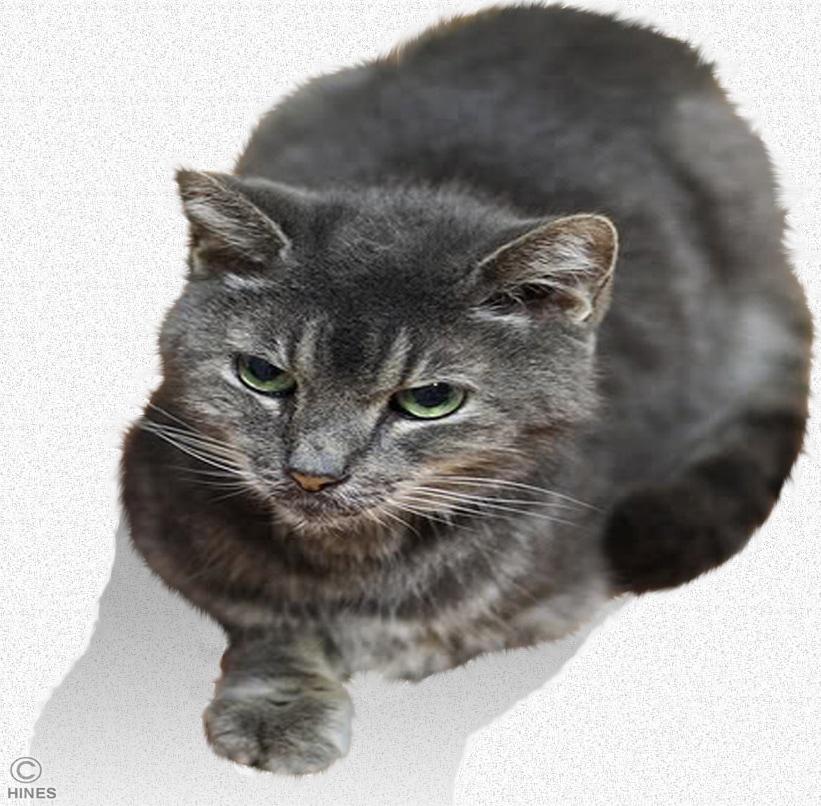
Lymphoma In Your Cat Ron Hines Vetspace 2nd Chance The Animal Health Website

Causes And Risks Of Cat Lymphoma And Leukemia Vlog 97 Youtube

Lymphoma In Cats Veterinary Partner Vin
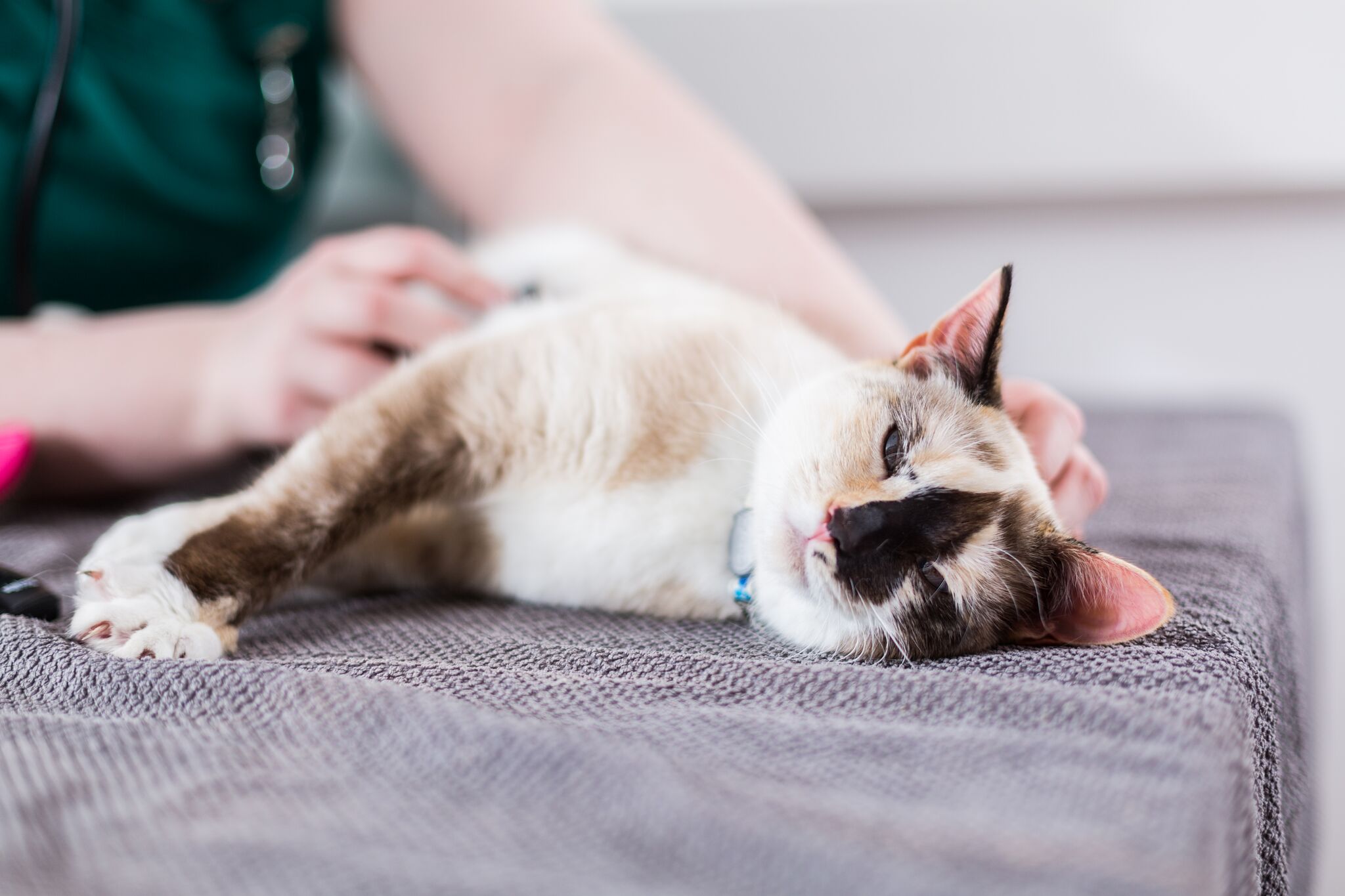
Blog Referral Vets In Leeds Swift Referrals

Cat Lymphoma What You Need To Know About This Feline Cancercherished Companions Animal Clinic

Read About Gastroenterology In This Article By Sandra Grover

How To Diagnose Feline Intestinal Lymphoma 9 Steps

Lymphoma In Cats Symptoms Diagnosis Treatment All About Cats
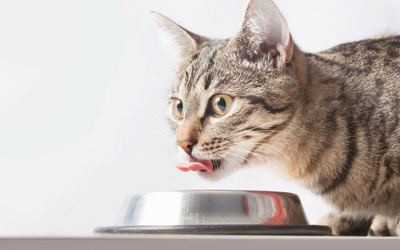
Lymphoma In Cats Vca Animal Hospital

Lymphoma In The Cat Fact Sheet Davies Veterinary Specialists

Diagnosis And Treatment Of Feline Lymphoma Glories Veterinary Hospital

How To Diagnose Feline Intestinal Lymphoma 9 Steps

Feline Gi Lymphoma And Ibd Research At Basepaws

How To Diagnose Feline Intestinal Lymphoma 9 Steps

3 Ways To Treat Feline Intestinal Lymphoma Wikihow

What You Need To Know About Feline Intestinal Lymphoma Vlog 98 Youtube

